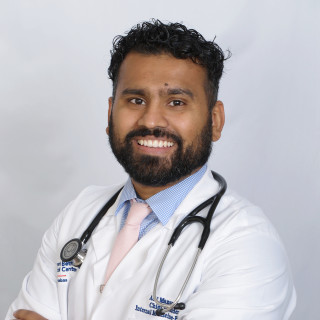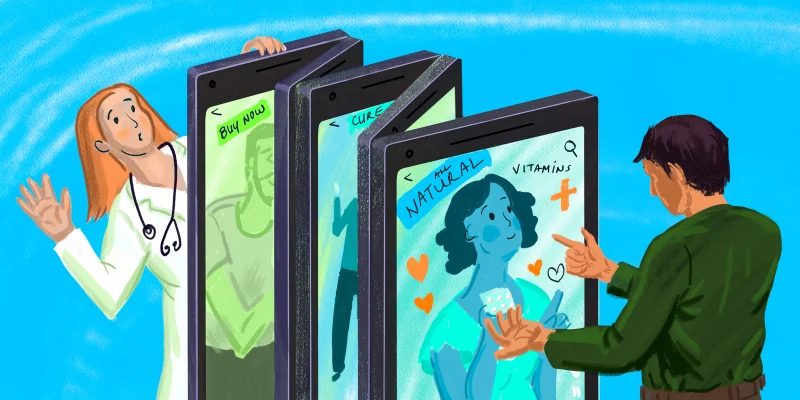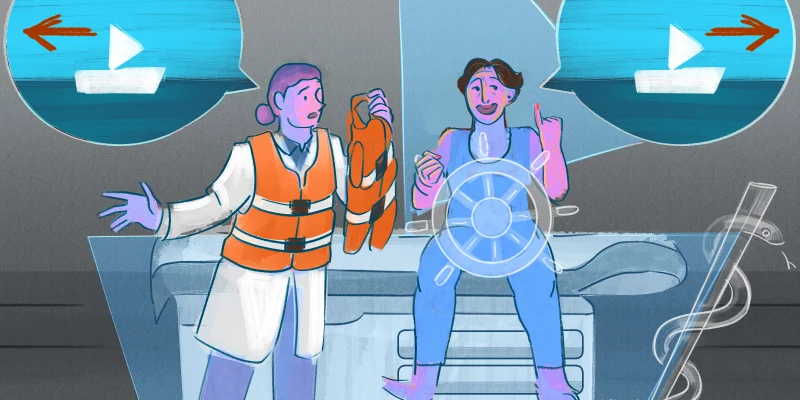
Nosocomial infections, also known as HAIs, are common infections within health care facilities and among health care workers. As a physician working in a primary care practice, urgent care, and the pediatric ED, I am not immune to such unprecedented and life-threatening situations at the workplace. In fact, I have to admit that I’ve been a victim of such nosocomial infections in the past, and so have my friends.
During my tenure at the hospital as an intern still undergoing training to become a physician, I contracted an HAI. One day, while on duty, I recall admitting a 4-year-old girl who presented with fever, cough, and in respiratory distress. I engaged the minor, in the company of her mother, in the attempt to inquire about her condition as part of the diagnosis. “For how long has she been like this?” I posed to her mother.
“About three days now,” she replied. I further inquired whether she had been prescribed any medicine before coming to the hospital, of which she admitted giving her fever reducers. I proceeded with my examination, placing a stethoscope on her chest to monitor the breathing pattern. As I examined the back of her throat, she coughed directly on me.
The respiratory pathogen panel confirmed the patient had parainfluenza type 3. She was subjected to regular treatments and discharged appropriately. What followed a couple nights later was suspicious to me because I experienced a consistent and uncontrollable cough, which compromised my sleep. Despite being optimistic that the situation would change in the morning, the reverse was true. I developed joint pains, wheezing, fevers, in addition to severe headaches. I had no option but to call in sick to rest and resume work the following day, hopefully.
Contrary to my early expectations, the following day my condition worsened. Indeed, my woes went on for three consecutive days, during which I missed crucial sections of training, including intern retreats. Barely a month after my recovery, I fell ill again! This time, I not only exhibited fever and chest pain but also experienced prolonged cough and a sore throat. Moreover, I always had a stuffy nose accompanied by wheezing, helplessly. Based on these symptoms, I assumed right away that I was suffering from parainfluenza type 3. While it is always advisable to seek diagnosis instead of making such an assumption, I did not see the reason to do so.
“You have flu, right?” A concerned colleague asked.
“Why?” I asked anxiously instead of responding to her concerns.
“You're always wheezing,” she observed.
“I think so,” I replied affirmatively to avoid further interrogation.
“Take antibiotics,” she suggested.
“No need. This is likely viral,” I responded.
While it was clear that I was not well, I did not want to let anybody know that I had developed parainfluenza type 3. You may wonder why, and, honestly, I have no answer to such a question. And, neither did I justify my refusal to seek treatment at that time. I wanted the condition to subside gradually and automatically without consuming any medicine.
Fortunately, my condition started to change as the illness and wheezing ceased several months later. With deep thoughts and calmness, I reflected on my practice as an intern, primarily to connect the dots as far as the source of the illness was concerned. At this juncture, I started to acknowledge and appreciate the necessity of wearing PPE while at work, especially when attending to a patient.
Besides, such noble initiatives like washing hands before and after attending to a patient have proven vital. They are sometimes the defining factors between life and death, as witnessed in the current COVID-19 pandemic. On a positive note, it is worth mentioning that I have not encountered any severe infection since then, partly attributed to, assumably, the precautions I have embraced to avoid nosocomial infections.
I have found adherence to the right procedures and the consistent and proper use of PPE at the workplace a major contributing factor behind my safety at the workplace amid heightened risk of nosocomial infections. Perhaps, the encounter with the infectious patient and the unfortunate ordeal I went through taught me a valuable lesson, which has proven to be worthwhile, especially now.
However, despite escaping unscathed, I have little to smile about, mainly because many of my colleagues have tested positive with SARS-CoV-2. Are they really safe? Am I really safe? The answer is no, they are not safe, and neither am I. I have worked with colleagues who have sustained needle prick injuries while attending to patients with HIV/AIDS. However, like many others, I still stay put, vowing to continue discharging my duties as a physician and in line with my values and principles.
The current COVID-19 pandemic has not only taken the world by surprise but also subjected health care professionals to enormous risks. In essence, physicians have become more vulnerable to nosocomial infections, including deadly COVID-19. While everyone once considered the virus a China affair, the reality has dawned on us, especially now that my colleagues have been infected. Our facility manager recently announced the demise of one of our colleagues who succumbed to the virus. I vividly remember the following words in his speech: “Wear that damn PPE! We aren’t safe, but that’s what comes with the profession.”
Adil Manzoor is an internal medicine/pediatric physician practicing in New Jersey. He's passionate about mentoring the next generation of leaders. In his free time he writes for local newspapers, mentors youth, reads voraciously, and most important of all, spends time with his wife and their daughter. And when time finally permits, binges Netflix! He can be found on Twitter at @Manzooradil2. Adil is a Doximity 2019-2020 Fellow.
Click here to see more perspectives on COVID-19 from the Doximity network.
Click here for up-to-date news about COVID-19 on Doximity.
Illustration by April Brust







